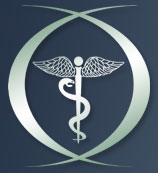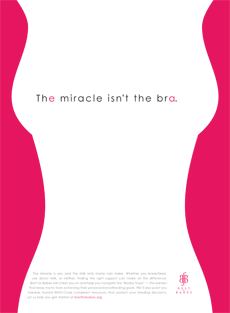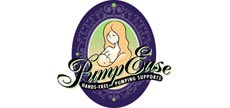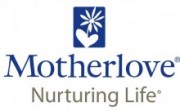We are very, very excited and honored to be speaking at the Academy of Breastfeeding Medicine‘s 14th Annual International Meeting, held in Williamsburg, Virginia from November 5-8th, 2009. You can see the complete meeting program here. If you have been hanging around the boob world for a little while, you will notice that many titans of the breastfeeding movement will be there . . . such as Ruth Lawrence, MD, FABM, Breastfeeding Section Chair, American Academy of Pediatrics; Suzanne Haynes; Department of Health and Human Services (we idolize her for her tough comments when the government’s ad campaign buckled under formula lobbyist influence); Lawrence Grummer-Strawn, PhD, Chief of the Nutrition Branch of the Centers for Disease Control; Audrey Naylor, MD, DrPH, FABM, Marshall Klaus, MD, to name just a few! We are in awe of these pioneers and leaders.
The Academy of Breastfeeding Medicine (ABM) was founded by a group of physicians who met at an International Lactation Consultants Association (ILCA) Meeting in 1993.
“Physicians identified several common needs, including sharing resources on physician education and breastfeeding management issues. . . . [The] drive to establish an organization was fueled by the many case reports presented by LC’s in training, which were able to illustrate situations where physicians participated in barriers preventing breastfeeding success. Several LCs were so enthusiastic about the start-up of a physician breastfeeding organization that they donated money on the spot, to ignite its beginning.”
The ABM’s Position Statement (which is worth reading) explains that
“in order to optimize breastfeeding practices universally, physicians must learn evidence-based breastfeeding medicine, skills, and attitudes. There have been relatively few physicians committed to these goals . . . physicians play a central role in the promotion, protection and support of breastfeeding. We stress that breastfeeding and human lactation warrant serious, increased and significant attention in medical training, practice and research, given the substantial and longitudinal impact of breastfeeding on maternal, child and societal health, as well as the influence healthcare policies and practices have on women’s breastfeeding decisions and success in achieving their goals.”
In talking to hundreds of mothers about their breastfeeding experiences, we have heard wonderful stories of physicians who have encouraged their patients without pressure, judgment or guilt, but we have also heard horror stories of physicians who undermined a mother’s feeding decision, or her breastfeeding success, often unknowingly, thereby becoming one of the “booby traps!” Jack Newman, MD has been very outspoken about how to spot a doctor who is not breastfeeding-friendly. Finding an ob-gyn and pediatrician for your baby that is truly supportive of your decision to breastfeed is part of our Ultimate Breastfeeding Preparation Checklist and is discussed in “Your A-Team: Finding a Pre-Natal Care Provider, Hospital, and Pediatrician. ”
Best for Babes believes that the work of the Academy of Breastfeeding Medicine (ABM) is critically important. Do you agree? If so, how can we help the ABM grow and succeed? The ABM has a membership of 525. The American Academy of Pediatrics has a membership of 60,000. Should all pediatricians be required to be educated in the basics of lactation management, even if it is just how encourage and appropriately refer patients? Should ob/gyns be similarly required to attend a basic training? The ABM offers a one-day course “What Every Physician Needs to Know about Breastfeeding” on the first day of the conference. Do you think your child’s pediatrician, or your ob/gyn, or your allergist, or cardiologist, would be willing to take such a course? Would your pediatrician or ob/gyn be willing to become a Fellow of the Academy of Breastfeeding Medicine (FABM), much as many doctors are fellows of the American Academy of Pediatrics (FAAP)? What would be helpful to you in talking to your various physicians about breastfeeding support? What experiences have you had?
We are looking forward to hearing your thoughts!


 @BestforBabes
@BestforBabes Best For Babes
Best For Babes






If not OBGYNs and pediatricians, then who? Women seem to sort of fall through the cracks after they have a baby. Maybe we need a new position all together, someone to address the specific needs of the post-partum mother. Women don’t go back to the OBGYN for 6 weeks and see their pediatrician multiple times in the first weeks/months, but no one is paying attention to mom. What do you do if you are having issues with PPD? Who do you call for help breastfeeding? You can pick up the phone and call an anonymous woman at LLL or pay a pricey lactation consultant, but why shouldn’t the people who know you and your baby the best step up to the plate? I think in an ideal world, mom would go back to see her OB within a week of birth to discuss any problems with breastfeeding or depression. Her pediatrician would be trained in lactation management, but would also have an LC on staff taking appointments all day. Am I dreaming? Can we make this a reality? It seems other countries provide home visits for moms in those early weeks to spot these difficulties and the outcomes are way better than ours here in the US.
What I think is so often left out of breastfeeding discussions is the stress of others on the mother. Yes it is mentioned, but only in passing.
Many times, husbands want their wives back. Women want to be back as well. We have a very hurried culture. Not only do leaking breasts make women feel “not back” it may make her feel unsexy. Sex is a major reason that many women I know quit breastfeeding. They feel as though they will lose weight, the baby will sleep longer, their husbands can play with their breasts again, etc. I believe most women start with the intention to breastfeed and have good intentions. Most women I know also fear their husband cheating on them or leaving them. Combine that with anxieties and sleepless nights and the mother will start using those free samples.
Another concern is that women say “formula sits in their stomachs better.” I think a bit more focus on the fact that formula is harder to digest, so the baby is uncomfortable and cranky needs to happen. Formula doesn’t sit in their stomachs better.. their stomachs have difficulty with it and so the baby sleeps more.
These are a few of my ideas. Thanks!
Can breastfeeding info be a part of every physicians training in school?
If not, can the ABM get out the message to physicians that, if there are questions about breastfeeding, talk to an LC?
If not, can the ABM get the word out to peds “Do not supplement with formula at the first sign of trouble”?
How about the 1 point for ob’s: “Put baby on belly after delivery”? Some kind of ad campaign to that effect going to all OB offices?
Find one point they (ABM) can make every year, and send out that point to the physicians in this country.
I had my OB ask me right after delivery if I wanted the baby on my belly or if I wanted her cleaned up first. Why ask? Moms who know its importance will say yes, moms who don’t will say no. If the OB knows its importance, they’ll just do it! Just put baby on the moms belly!! If the mom complains, tell her the baby will be cleaned up momentarily.
I had my ped, who has breastfeeding listed as her specialty, actually recommend formula so that I could get some rest at night! Also suggested formula on day 2 because baby hadn’t had a BM in the 2nd 24h. Baby finally had a BM on day 4 (a huge one!!) and she was just fine. If I didn’t have all the information I did, then I would have given in and given the baby the formula I was sent home with.
Get the word out to peds at least, they don’t all have the time/money to go to meetings and take classes.
I’m from the UK where we have a midwife out every day for the first 10 days post birth and the a health visitor who visits weekly for 6 weeks and then drop in baby clinics.
This works quite well, my main issue is that sadly a lot of the health carers have NO idea about breastfeeding.
They still use charts for growth that are formula based.
they tell you baby ought to feed every 4 hours when in the early days that’s not the case. So you end up thinking you’re starving your baby.
If you’re lucky to get a pro Breastfeeder then you’re lucky because you get the best information - as in the truth.
This needs to be revealed - the old thoughts of a newborn going 4 hours plus without a feed needs to go and th truth that they can will and do feed at the very least 2 hourly need to be pushed.
The competition of the baby sleeping through the mummolympics MY baby sleeps for 8 hours aren’t I fab?!
Maybe attending a breastfeeding group to hear real stories before birth could help.
Things like cracked nipples and masitis don’t have to be normal sore yes but not everyone gets cracked nipples.
ALl those things that seem to be guarded secrets need to be made public!
As for sexiness you get over it!
Obviously the ABM knows what’s important for breastfeeding. How to get the message out is what matters.
So I suggest they focus on how they can communicate effectively to physicians.
Also how to increase their numbers.
Increasing membership may not be enough.
The AAP has huge membership, yet all pediatricians do not follow their recommendations.
What we need is policy change.
If the AAP can focus on policy change, then something could happen.
The insurance companies are the ones mandating seat belts in cars; how about we get them informed so they can mandate best breastfeeding practices for infants?
Yes the ABM is important. The work they do is important. If the goal is to grow, I would suggest they start a campaign in the medical schools. Get the professors to encourage students to become members. Go to medical schools and have lectures, make themselves “sexy” and the hip in thing to do. Make sure they constantly bombard students with calls to join. Have letter-writing campaigns to congress/senate where students write in about policy change. (Do this also with established physicians)
That will be a start.
It would also be helpful for breastfeeding women with ongoing (or even occasional) medical problems to have a Physician on their side. A lot of the time, the information on what medications are safe for lactation aren’t current to studies and research. Every physician treating women, or pediatrics, should look into having an up-to-date copy of Medications and Mother’s Milk available to page through. If they aren’t up to doing that, they at least should let mother’s know that it’s available to the general public, and it allows her to find out for herself whether she’s comfortable with a certain medicine or not.
Women should also be assured that the milk leakage Does Stop. Usually within a few months. I’ve been breastfeeding for a year and a half now, and haven’t had a leak in over a year.
Another thing women need to know is that just because they’re pregnant doesn’t mean they ‘Have to Wean’. It may be a little uncomfortable at first - especially if our breasts are sensitive - but I’ve found that the initial discomfit goes away within moments of latch-on. I’m currently 20wks pregnant with my fourth, and breastfeeding my 17mo old daughter with no ill effect.
As another lady said, women need to know that the reason many babies sleep longer when on formula is because it takes much longer to digest and is harder on little tummies. Babies also tend to poop more when on formula because less of it is digestible. Another thing that always makes my husband happy is that the breastfed diapers are So Much Less Stinky than formula!!! Our first was formula fed due to lack of education, and the difference between her diapers and our second’s was night and day. Save those noses!
Breast Milk gives antibodies to the baby. If you or s/he is sick, continuing to breastfeed is the best thing you can do. If you’re ill, the antibodies your body is building while you fight off the ick are passed on through the milk, working almost like a temporary vaccine. For example, every time I’ve BF through being sick, my kids have either not come down with it at all, or were over it in a fraction of the time.
I would tell them that finding a brestfeeding friendly pediatrician is nearly impossible in Greenville SC!
Even the pediatricians that say they are breastfeeding friendly still recommend a daily relief bottle, even one that included formula, for a baby as young as 3 weeks old. The rest of them say that it is not up to them what the mother chooses to feed her baby be it formula or breastmilk.
Obviously breastfeeding is not seen as critical and the dangers of formula are not even considered. So what if your baby is jaundiced, do they recommend expressing milk? No, they recommend formula.
The thing is you do not see the pediatrician before the baby is born, you see the OB. Does the OB talk to you about breastfeeding? Kinda. They asked if I would breastfeed. For my first child I said I was goign to try, but didn’t know if I could since my mom never was able to. Did they ask why my mother couldn’t and help me through my fears? No, they said that formula would be fine. (I went on to breastfeed for 16 months)
With my 2nd they asked if I’d breastfeed and I said yes. Did they ask for how long? Did they direct me toward help/reading to ensure I met my goals? No. They had a prize drawing from a formula company to win a diaper bag with formula samples anmd “nursery water” (what on earth is that?) and gave out various other freebies with formula samples and coupons. When I said I didn’t need these items as I’d be breastfeeding the response was. Well you could still keep the samples just in case breastfeeding didn’t work out.
It is assumed that most of us will formula feed at one point or another (as most do). How about assuming most of us will succeed instead?! How about giving out information to expectant moms on the importance of breastfeeding and directing them to information that will help them meet their goals?
Hwo about having posters at OB and pediatrician offices that promote breastfeeding and normalizing it for the majority of our population?
Offering continuing education credits for an in-person or online course would be smart. This would appeal to nurses and physicians.
Oh I like the comment about insurance.
I know that for my large company (~ 1000 employees).
The 2nd largest amount of money spent on medical bills by the employees is childbirth. (The largest is back injuries). So if employers and large insurance comanies were told that some practices such as natural childbirth, putting baby on mom’s belly, breastfeeding etc.. would lower their medical bills, then they would do something about it!
My company has a large number of monetary incentives through CIGNA like an exercise incentive, annual exam, smoking cessation etc. They also have healthy pregnancies healthy babies program that helps to identify mothers with risk factors and lower those factors with education and calls from nurse practitioners (I got $150 for doing the program!). If Cigna could expand that to promoting breastfeeding and natural labor (by paying for natural chilbirth classes and breastfeedign education classes for example) that would lower bills dramatically. It would also confer all the benefits of breastfeeding.
I know that my natural labor with my 2nd where I was mostly at home and didn’t go to the hospital till the last minute, lowered my bills by ~ $10 000! vs. my first with epidural, IVs and the like.
Organization(ACOG, AAP )requirement to attend a case or a webinar needs to be required. They will not obtain this information on there own. Not even CEU with entice them. Hospitals need to make sure that there peds are on the same page as the lactation consultants in the hospital and not counterdicting what they specialist is teaching. Stopping breastfeeding due to jaundice, supplementing just because the infant is large without only trying breastfeeding initially. Maybe a web site showing pohysician that are breastfeeding friendly and true adovates of the cause.
I think it is downright criminal that pediatricians are not required to be “breastfeeding experts.” How can they be baby doctors when they know nothing about the way babies are supposed to be fed? When I would call my pediatrician’s office, the first question I was asked was “what formula is your baby on?” They just assume the baby isn’t breastfed! Doctors are seen as all-knowing, all-powerful gods in our society. They hold so much sway and influence. Obviously, as a culture, doctors do not support breastfeeding. If they did, more women would do it. My doctor didn’t encourage me to breastfeed, even though I was happily doing it! He would say “You’re still nursing? That’s great, or you can give the baby formula if you get tired of it.” Here I was motivated to nurse my baby, and he was openly giving me the easy-out, even though I wasn’t having any problems! Why would I get “tired” of it when it was going so well?
I want all doctor’s offices to be required to encourage breastfeeding. When you call the doctor’s office, they should make the assumption that you’re nursing your baby, not giving your baby an artificial and inferior food. They certainly shouldn’t encourage formula!!! Make breastfeeding be the norm, instead of making you feel like an alienated outcast! I mean, how ridiculous that breastfeeding basically makes me a hippie in our society! Giving your baby formula for no good medical reason, just laziness, should get a negative reaction from your doctor and NOT a pat on the back. If nursing mothers were treated well by doctors, then society would probably treat them better.
I would also like to see breastfeeding be advertised in doctor’s offices at least as much as formula is. It’s ridiculous. I can’t go 3 feet in a doctor’s office without seeing some Enfamil or Similac poster or pencil holder. It’s just wrong. There should be pictures of women with babies at their breast, not with bottles in their mouths. Maybe if the mothers who were formula-feeding felt a little out of place from time to time, then they’d have to start feeding their babies in bathroom stalls! Ha ha
The booby traps to successful breastfeeding abound and one of the biggest is the medical system. How is it that I trained to become a pediatrician for 8 years and graduated with ZERO training about breastfeeding? Then I set out to work in a highly respected hospital that was accepting their formula for free. 92% of maternity facilities in the US are doing that TODAY. How about that for a dirty little secret? Arent we suppose to market health, and not be a middle man for a pharmaceutical industry? Then we had hospital policies that separated the brand new perfectly healthy baby from the perfectly healthy mom. Why? So we could get our paper work done. Unless your nipples and breasts are 80 yards long and can go under locked doors and up and over warmers, going to that nursery is a monstrous obstacle to breastfeeding. Then the nurse helping you out, well she probably had zero minutes of training on breastfeeding as well. You cant keep it going if you dont get it started. The problem is not you new moms, WE are the problem. Do the best you can. You are doing a great job!! MD from Boston
I am a physician and Fellow of the Academy of Breastfeeding Medicine who just attended and tremendously enjoyed your presentation about “Best for Babes.” My experience in trying to help mothers and their children to breastfeed has included just about every situation your excellent website identifies as “booby-traps.” I love that concept and I applaud your foundation’s approach towards moving mothers away from blaming themselves, breastfeeding advocates and other mothers for their breastfeeding problems, towards identifying the real barriers that cause so many mothers to wean long before their personal breastfeeding goals are met.
Just wanted to point out a somewhat disturbing omission in your discussion about the role of physicians in breastfeeding support: family physicians. Not only pediatricians care for children, nor do only obstetricians provide prenatal care. Many family physicians provide family-centered prenatal care and birthing as well as providing care for the newborn, the older sibs, the father, even grandparents among others. Even family doctors who don’t do obstetric care still can fill the role that Elita asks about when she asks who can take care that postpartum mothers and their babies don’t fall through the cracks. So please, don’t forget to mention family physicians on your list. The American Academy of Family Physicians has a comprehensive and evidence-based Position Paper in support of breastfeeding. Unfortunately, our membership, similarly to our pediatric and obstetric colleagues, have variable knowledge about breastfeeding. We need to encourage much improved education of family physicians about breastfeeding, in order to remove at least that “institutional and cultural booby-trap.”
I am a breastfeeding mother of an 8-week-old. He is my 3rd child, and I have nursed all of them. I have extremely sensitive skin and have all sorts of issues with skin cracking on my nipples, and I have YET to find anyone who can explain why or what to do about it. I have long wished that there was someone like Dr. Jack Newman in my city. Even if the only thing to do is suffer through it, it would be nice and reassuring to have someone say, “Yes, I have seen other cases of this. Try x, y, and z, and if that doesn’t work, then time may take care of it” As it is, I am just plugging through on my own because I KNOW breastfeeding is the absolute best for my children.
Have you tried mama@earthmamaangelbaby.com? She is a nipple queen! Even if her product doesn’t work for you, I am sure she has good advice.
My 30 week premature adopted son’s life was saved my community breast milk donors. New studies are showing 10 points added to premies IQ with 12 months of breast feeding. My son ended up with MR those 10 points made a HUGE difference in his ability to funuction in his life!! Most of his doctors thought I was crazy!! He would not tolerate any formula because that is for baby cows not humans. Why do we have to do Prolacta studies to prove it is good to give premature humman milk to humans and cow milk is the control. We should have to PROVE it’s not harmful to cross specisis feed sick premature humans before we allow our babies to be fed cow milk before a year of age!!!!!!! Esp in a ICU we don’t give them cow blood!! Many Mom’s will help just like blood donors! My baby requied about 7 donors for 18 months they were awesome!!!!! The saved his life and added 10 points to his IQ of now 50. He woouldn’t have had a chance with out them!!!!!!